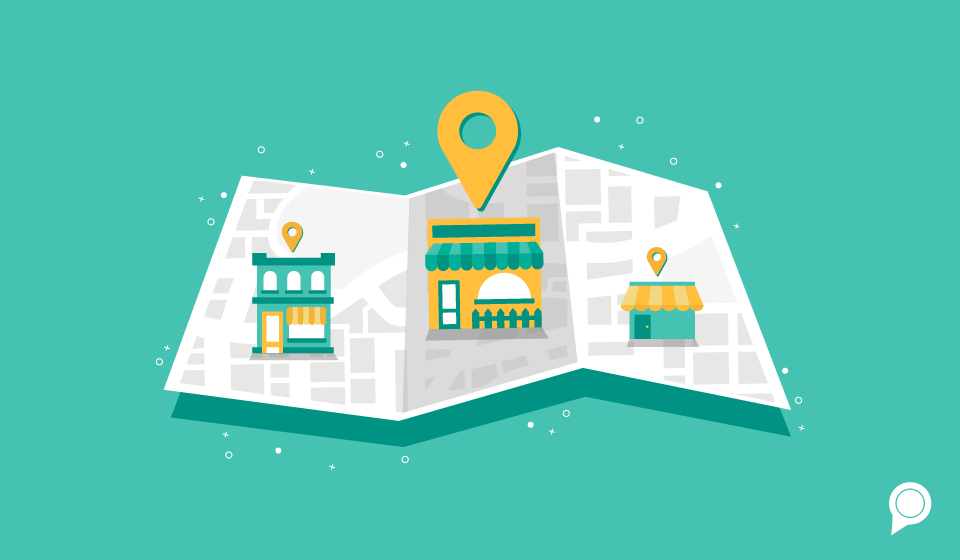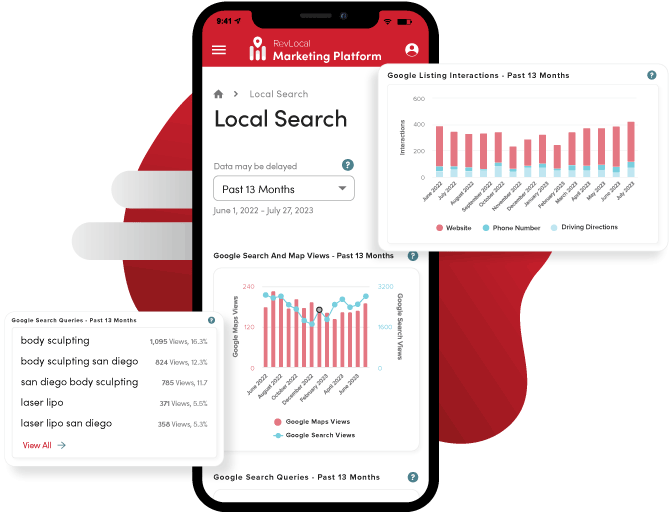Unlock the secrets of local search marketing and learn how to dominate your competition with targeted online strategies. Dive in now!

Image courtesy of via DALL-E 3
Table of Contents
Welcome to the world of online discovery through local search marketing! Have you ever wondered how people find stores, restaurants, or services near them when they search online? That’s where local search marketing comes into play, making it easier for you to locate businesses within your area.
What is Local Search Marketing?
Local search marketing is a way for businesses to ensure they can be found by people in their vicinity on the internet. It’s like a virtual map that helps you discover the best places nearby without having to wander around aimlessly.
Why is it Important?
Businesses rely on local search marketing to attract customers in their neighborhood. By being easily discoverable online, they make it simple for individuals like you to find what you need without any hassle. So next time you’re craving a pizza or in need of a haircut, local search marketing will guide you to the right spot effortlessly.
How Local Search Marketing Works
Using Your Location
When you search for something on the internet, like “pizza near me” or “hair salon nearby,” the search engine you use, like Google, takes into account where you are. It cleverly figures out your location and shows you results that are closest to you. This means you can find businesses and services that are just a stone’s throw away!
Using Keywords
Keywords are like secret codes that help search engines understand what you’re looking for. When you type specific words into the search bar, the search engine matches those words with businesses or services that have similar keywords on their websites. So, if you type “best ice cream shop in town,” the search engine will show you ice cream shops that brag about being the best in your area!
Creating a Google My Business Profile
Google My Business is a tool that allows businesses to create a profile on Google so that they can be easily found by people searching online. It helps businesses showcase essential information like their location, contact details, business hours, and more.
Setting Up a Profile
To create a Google My Business profile, follow these steps:
1. Visit the Google My Business website and click on “Start Now.”
2. Enter your business name, address, phone number, and website.
3. Verify your business by receiving a postcard from Google with a verification code.
4. Add photos of your business, products, and services to make your profile more appealing.
5. Keep your profile updated with any changes in your business information.
Optimizing Your Website for Local Search
When it comes to attracting local customers to your business, optimizing your website for local search is key. By using specific strategies, you can make sure that your website appears in search engine results when people in your area are looking for your products or services.

Image courtesy of www.revlocal.com via Google Images
Using Local Keywords
One of the most effective ways to improve your website’s visibility in local searches is by using local keywords. These are words or phrases that include the name of your city, town, or region. By incorporating these keywords into your website content, meta tags, and headers, search engines will have an easier time matching your site with local searches.
Adding a Contact Page
Having a contact page on your website is crucial for local search optimization. Make sure to include essential information such as your business’s address, phone number, and email. This not only makes it easier for potential customers to reach you but also provides search engines with valuable location data to improve your website’s local search rankings.
Collecting and Managing Reviews
Online reviews are like word-of-mouth recommendations on the internet. They help people decide which businesses to trust and give them insight into the quality of products or services. As a business owner, it’s essential to gather and handle reviews effectively to build trust and credibility with your potential customers.
Asking for Reviews
There are several polite ways to encourage your satisfied customers to leave reviews. You can include a gentle reminder on their receipt or in follow-up emails thanking them for their business. You could also create signage in your store or on your website requesting feedback. Remember, the more positive reviews you have, the more likely new customers will be confident in choosing your business.
Responding to Reviews
Responding to reviews, whether they’re positive or negative, is crucial for demonstrating your commitment to customer satisfaction. When you receive positive feedback, express your gratitude and acknowledge the customer’s kind words. For negative reviews, it’s essential to address the concerns politely and professionally. This shows potential customers that you care about their experience and are willing to make things right when mistakes happen.
Using Social Media
Social media is a powerful tool that businesses can use to connect with local customers. By engaging with people online, businesses can build relationships and attract more followers who might become loyal customers. Here’s how businesses can leverage social media to their advantage:

Image courtesy of www.hillwebcreations.com via Google Images
Choosing Platforms
There are many social media platforms available, such as Facebook, Instagram, Twitter, and LinkedIn. Businesses choose platforms based on where their target audience spends the most time. For example, if a business wants to reach a younger audience, they might focus on Instagram or TikTok. If they are targeting professionals, LinkedIn might be the best option.
Posting Content
Businesses can post a variety of content on social media to engage with their audience. This can include sharing promotions, events, behind-the-scenes looks at the business, customer stories, and more. By posting regularly and providing valuable content, businesses can keep their followers interested and engaged.
Monitoring and Measuring Success
One of the key ways businesses can keep track of how well their local search marketing is performing is through the use of analytics. Tools like Google Analytics can provide valuable information about website traffic, including how many people are visiting the site, where they are coming from, and which pages they are viewing. By analyzing this data, businesses can gain insights into the effectiveness of their marketing strategies and make informed decisions on how to improve.
Adjusting Strategies
It’s essential for businesses to be flexible and willing to adjust their marketing strategies based on the data they collect from analytics. If certain keywords are not driving traffic to the website as expected, or if a particular social media platform is not generating engagement, it may be time to reevaluate and make changes. By paying attention to the results and being open to adapting their approaches, businesses can optimize their local search marketing efforts for greater success.
Tips and Best Practices
One of the key things to remember in local search marketing is to ensure that your business information is consistent across all online platforms. This means that your business name, address, phone number, and website should be the same wherever customers find you. Consistent information not only helps customers easily locate and contact you but also boosts your visibility in search engine results.

Image courtesy of www.revlocal.com via Google Images
Regular Updates
Keeping your business information and content up-to-date is crucial for successful local search marketing. Regularly updating your Google My Business profile, website, and social media accounts not only shows customers that you are active and responsive, but it also signals to search engines that your business is relevant and trustworthy. By regularly refreshing your information and engaging with customers online, you can improve your visibility and attract more local clients.
Conclusion
In conclusion, local search marketing is a powerful tool that helps businesses attract nearby customers by making it easy for people to find them online. By optimizing their online presence, businesses can increase their visibility and reach a wider audience. Success in local search marketing leads to more customers and increased revenue.
Businesses that invest time and effort into local search marketing can see significant benefits, such as increased website traffic, improved brand visibility, and a stronger connection with their local community. By following best practices and staying active online, businesses can build a loyal customer base and thrive in today’s competitive market.
Overall, local search marketing is a valuable strategy for businesses looking to grow and succeed in the digital age. By utilizing the tools and techniques outlined in this guide, businesses can set themselves up for success and attract more customers in their local area.
Want to turn these SEO insights into real results? Seorocket is an all-in-one AI SEO solution that uses the power of AI to analyze your competition and craft high-ranking content.
Seorocket offers a suite of powerful tools, including a Keyword Researcher to find the most profitable keywords, an AI Writer to generate unique and Google-friendly content, and an Automatic Publisher to schedule and publish your content directly to your website. Plus, you’ll get real-time performance tracking so you can see exactly what’s working and make adjustments as needed.
Stop just reading about SEO – take action with Seorocket and skyrocket your search rankings today. Sign up for a free trial and see the difference Seorocket can make for your website!
Frequently Asked Questions (FAQs)
How Quickly Can I See Results?
Results from local search marketing efforts can vary, but generally, you may start noticing improvements in your visibility online within a few weeks to a few months. It takes time for search engines to recognize your optimization efforts and for customers to find and engage with your business. Consistent and strategic implementation of local search marketing strategies can lead to long-term success in attracting more local customers.
Do Small Businesses Need Local Search Marketing?
Yes, small businesses can greatly benefit from local search marketing. In fact, it is crucial for small businesses to implement local search marketing strategies to compete with larger companies and attract nearby customers. By optimizing your online presence for local searches, you increase your visibility to people in your area who are actively looking for products or services you offer. This can help drive more foot traffic to your store or increase inquiries for your services, ultimately leading to business growth and success.







